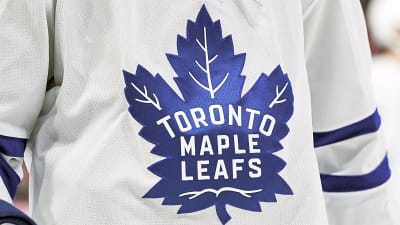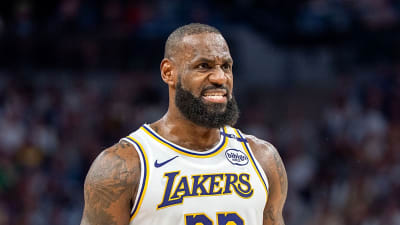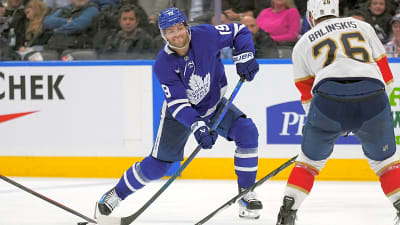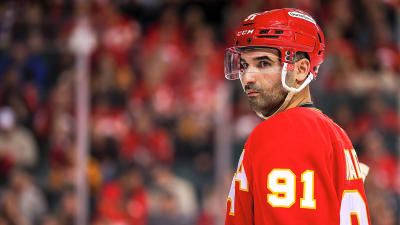
If the Boston Bruins want to add a top-six forward to their lineup this offseason, they should emphasize signing a player like Brock Boeser. The 28-year-old right-winger is set to be an unrestricted free agent on July 1 this year and has been one of the NHL’s most consistent scorers throughout his career. With the Bruins aiming to quickly retool rather than fully rebuild their lineup, Boeser could offer exactly what the team needs behind David Pastrnak.
Boeser scored 25 goals and 50 points in 75 games with the Vancouver Canucks this past season after having a breakout 40-goal, 73-point campaign the season prior. While a return to Boeser’s 2023–24 form would be ideal, the reality is his career production has more closely aligned with what he posted in 2024-25. Any team signing Boeser should expect just over 20 goals per season and around 50 points, and that’s more than enough for what would be the Bruins’ second-line right winger for the foreseeable future. For more context, 16 of Boeser’s 25 goals came at even strength, while nine were scored on the power play. He added 14 even-strength assists and 11 more with the man advantage, totaling 30 even-strength points and 20 power-play points last season.
Brock Boeser’s Value
The reason Boeser should be on the Bruins’ radar over a player like Mitch Marner, for example, comes down to the contracts each player is projected to sign this offseason. While Marner is one of the NHL’s elite talents, capable of scoring and shining as a playmaker, that type of production is often rewarded handsomely in free agency. Even with critics pointing out playoff performances as a slight against Marner, the fact remains that he’s scored 221 goals and 741 points in 657 regular-season games and 13 goals and 63 points in 70 playoff contests. This postseason, Marner scored two goals and 13 points in 13 games and was far from the problem for the Toronto Maple Leafs.
Realistically, Marner will command over $13 million per season on the open market and that may prove too rich for the Bruins. This isn’t to say they shouldn’t reach out to his camp, however, as he will undoubtedly improve any team he joins this offseason. If Boeser is expected to sign a contract that’s closer to the $8 million to $8.5 million annual range, however, then the Bruins would be wise to consider this; Boeser doesn’t produce at Marner’s level—few do—but if the Bruins can land Boeser and another $4.5 to $5 million player, that could go a long way toward accelerating this retool.
While the Canucks would almost certainly love to keep Boeser in the mix, that doesn’t appear to be in the cards for either side as the offseason quickly approaches.
“Honestly, it’s unlikely at this point,” said Boeser of returning to the Canucks next season. “It sucks, it’s unfortunate. I’m just trying to play good hockey, and then I’ll worry about everything after that. We all know it’s been a roller coaster of a year. There’s been a lot of different things.”
Perhaps the most unfortunate part about this entire discussion is the fact that the Canucks signed Jake DeBrusk from the Bruins last offseason for a seven-year contract that carries a $5.5 million annual cap hit. For reference, DeBrusk played in all 82 games for the Canucks and would score 28 goals and 48 points in his first season in Vancouver. Letting DeBrusk walk for such a team-friendly deal and then potentially replacing him with a comparable player for significantly more money one offseason later is ultimately a losing strategy at the end of the day. Still, the team can’t avoid making moves just because they might look bad in hindsight. It can be unfortunate, but it shouldn’t deter the team from making moves to help with optics.
Boeser is a good NHL player and reliable scorer, something the Bruins sorely lack outside of Pastrnak. If the team can find a way to keep Pastrnak, Elias Lindholm and Morgan Geekie rolling on the team’s top line and then roll out Pavel Zacha and Boeser on the second line, they’ll be in decent shape early in the offseason. It’s also possible that Zacha could return to the top line to join Pastrnak, with Lindholm joining his former teammate on the team’s second line.
At this point, the Bruins have options and some flexibility with their cap space. While there may not be a clear-cut “right answer,” there are certainly choices that could hold them back more than they’d like. Boeser appears to be a solid fit for Boston’s needs, but whether both sides share mutual interest and can agree on terms remains to be seen.
More must-reads:
- Jets sign forward Gabriel Vilardi to massive contract extension
- Ducks sign starting goaltender to a new five-year deal
- The 'NFL rookie 1,000-yard receivers' quiz
Breaking News
Trending News
Customize Your Newsletter
 +
+
Get the latest news and rumors, customized to your favorite sports and teams. Emailed daily. Always free!








